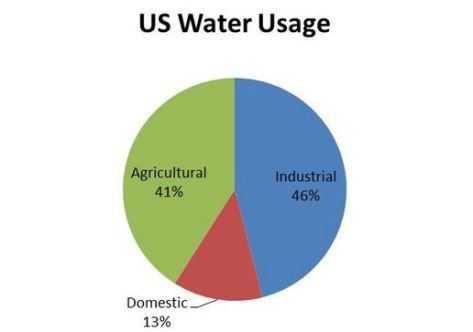There are some who believe that the only way to be sustainable is to go back to the good old days and abandon from its mining to manufacturing to electricity. Are they right? Do we need to start all over, let Earth regenerate, and live in local villages again? I took the time to consider many of these arguments. Many great points were raised that made me think we need to do more. Yet I remain unconvinced that tearing it all down is the solution. It would lead to chaos and probably more emissions from all the chaos! Let’s break this all down.
Manufacturing
In manufacturing, many ills are pointed out such as human exploitation, health, pollution, and waste. These are valid concerns. Dumping chemicals into the water and soil in order to externalize costs is an issue that must be addressed. Nonetheless, manufacturing can use vents and closed system emission capture technology to remove pollutants from the air. Improved material recycling innovation can lead to no solid or liquid wastes. Once humans are capable of rearranging atoms with nanotechnology, all “wastes” can be converted into something else with molecular manufacturing i.e. literally changing the aerosol molecule into something else. No pollution or waste would mean no impact on human health. Finally, human exploitation is unfortunately something that occurs all over regardless of environment. Better civil rights and labor laws in countries that participate in these practices are the only practical solutions.
Water
The water issue is admittedly a more difficult issue to address. Environmentalists raise concerns like dams which block off water flow. This affects fish migration patterns, lowers water tables making it harder for plant roots to get water, and floodplains that create downstream and coastal erosion when not subjected to seasonal flooding. Possible solutions could be more widespread roof and rain barrel capturing. Also reducing urban sprawl would create less digging to replace and install new pipelines.

Attention must be paid to who uses the water the most: agriculture and industry. Agriculture water is frequently subsidized, allowing farming to simply spray water randomly over fields, and manufacturing uses a lot of water for the cooling of machines and processes like quenching metals. Drip irrigation and improved ISO 14001 standards to minimize water use are a must.
Overall, the water cycle will evaporate the water, renew it, and enable it to be used again. The largest issue to address would be the soil, land, and marine life that is impacted by large dams and pipe networks.
Recycling
Packaging is the biggest waste in our consumer society. Not only can the plastic nowadays be impossible to open, but most of that packaging ends up in landfills (and usually products inside them too!). The best ways to address this would be to standardize packaging materials that can be recycled in a closed loop system. That way we don’t have to tear down more forests for packaging. Reducing needless consumption is another avenue to travel.
A clever idea for reforestation is using drones to autonomously plant tree seeds. If anything, I see robotics as a great answer to waste. They can operate nearly all the time and can do tasks like plant trees, remove litter from the side of roadways, or even sort out garbage in landfills themselves. Granted this will take an improvement in computer vision but that is only a matter of time.

Sustainable Buildings
Even buildings that we house ourselves in are not good. While I can agree with that in terms of energy efficiency, material use, and excessive size, I don’t think removing all buildings and living in caves is an answer either. Never mind that there are super-insulated homes built in the 70s that had solar heat the home for an entire year! We can improve the design by using passive solar to orient trees, windows, and ducts to improve the thermal efficiency of the home. Now I do agree that we need to find a way not to tear down more natural land for new housing developments. We should find ways to retro fit homes better, or, if we have to knock them down, recycle all of the materials of the home. It’s even better if most of it was recycled back into the new house!
Mining
This is another area that can see improvements like land reclamation by planting new vegetation, purifying water used for mining, dust control, and capturing methane emissions. Eventually we will innovate electric motors and batteries to the point that mining vehicles can run on clean energy. Some may say batteries are unsustainable, but there are super-capacitors, flywheels, thermal storage, compressed air, and flow batteries that offer better promise than batteries that need to be replaced every few years.
Electricity
Some don’t even like solar panels and wind turbines. Not because they want to “drill baby drill”! They object because of the rare earth mining, the energy used to manufacture them, pollution from said manufacturing, slave labor, and wars over resources. Most of these have been addressed at this point. Better mining practices would not create a toxic wasteland. Manufacturing should be improved to halt emissions and dumping. If all energy generated were renewable, then the dirty energy in manufacturing wouldn’t exist. Finally, the slave labor and wars are functions of labor laws, civil liberties, and both internal and regional politics.
Other issues include the wind blades’ ultrasonic noises that affect people’s health, which can be fixed by not zoning wind turbines close to residential areas. Another is the birds and bats getting killed by wind turbine blades. Sensors can and are being placed on the turbines with ultrasonic “boom boxes” to play sounds to repel these flying critters, so they don’t run into them.
Wars and slavery are human issues that rise due to human nature not solely industrialization. To alleviate these issues require a deeper collective spiritual introspection on why we let our greed and lust lead to conflict.
An Inconvenient Truth
The truth is that any solution is neither simple nor easy. If the electricity were shut off, everyone on breathing machines and the like will die, including the elderly and premature born babies. If society itself was dismantled, the human factor would not go away. Indeed it would exacerbate the problems as there would be food and water riots, manufacturing plants with harmful chemicals would be set on fire, and as a result pollution would increase. Some believe that humans would sit idly by once the light doesn’t come on and sing Kumbaya in a circle. We got to be more reasonable about this.

As a species, we are in a conundrum. Dismantling society is a shortsighted view of the tide of resistance and the resulting consequences. Perhaps if we could go back before the steam engine was built and start from a cleaner, greener slate, we could be sustainable from the get go. However, hindsight is 20/20. Surely, we could have developed solar and electric cars if not for the railroads and oil interests in the 1800s. The photovoltaic effect was first observed in 1839, and the first solar cell was patented in 1894. Thomas Edison and Henry Ford worked on an electric car until allegedly the nickel-iron batteries that Ford bought from Edison were swiped out for lead-acid batteries, and Ford, angered not being aware of this change, scrapped the project.
Not only are there solutions to many of these issues of modern society, but they are being improved everyday. Couple these innovations with shorter supply chains that support local economies, and we make way to a sustainable society. Many of these same people who say bring it all down are also using plastic electronic technology with rare metals powered by fossil fuels to tell us to do so. Keep that in mind next time you read online someone denouncing the very society that feeds, houses, and keeps them warm. We shouldn’t just throw it all out. We should be responsible, both to nature and ourselves, to set things right.

Technology and progress may be the only way to save society. Ideas like greening the forests and circular economies (even if only in closed segments) are important tropes in this.
But it is interesting to assess the trope of ‘Deep Ecology’ in general. The goal of Deep Ecology to make humans reassess their position in nature and make individuals and societies feel more like stewards of nature (instead of owners of). But the premises don’t actually lead there…
The basic idea is that human have no special place in nature, and therefore no special rights to nature. But Deep Ecologists are not interested in discussing how that also means we have no special responsibilities to nature. Lots of species modify their environments; ants build mounts, beavers build dams, and the existence of a predator defines features of an ecosystem. There is no reason, on Deep Ecology, to assume that human infrastructure, manufacturing, and energy generation isn’t just ‘ecology as normal’; it is human ecology to progress technology.
Instead, to get to the end point Deep Ecologists are aiming at — that we have a moral compunction towards nature — we have to start with the complete opposite starting point: we do have a special place in nature, and therefore we have special responsibilities to nature.
It’s not difficult to define that special place in nature. I’d argue it is our ability to conceive of far reaching consequences, in both time and Geography; our ability to empathise and to tinker in such a way that is effects what our footprint in nature actually is.
And if we’re going to be tinkering — for better or for worse — that implies technology and constant revolution.
LikeLike
Yes, we can only move forward. The past was not that great anyway.
The future needs to bring something different than we’ve done so far, something better for everyone and for our planet.
LikeLike